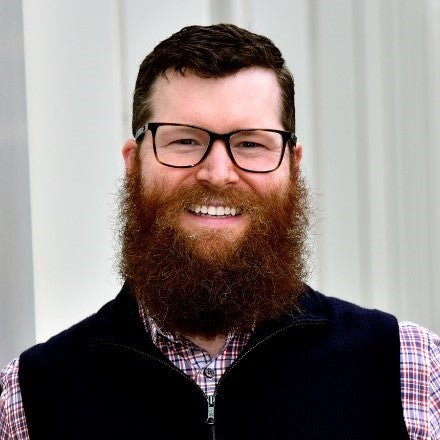The innate immune system provides a rapid but non-specific response to immunological challenges, such as infection, vaccination, and biomedical device implantation. On one hand, vaccines are enabled by innate immune cells that initiate highly specific adaptive immune responses, thus allowing the eradication of some infectious diseases. On the other hand, innate immune cells cleanup damaged tissue from surgical insertion of biomaterial-based devices such as artificial hips and brain electrodes. This seminar will focus on engineering innate immune dynamic and present three unique discoveries at the intersection of innate immunology, biomaterials, nanotechnology, and computational genomics. First, a ubiquitous goal for biomaterial implants is to reduce the inflammation stemming from innate immune cells at the implant-tissue interface. Interestingly, my work with Lonnie Shea showed that this immune response to materials is altered during disease and can be harnessed as a diagnostic site to monitor cancer progression and treatments. Second, a primary feature of innate immune cells is their ability to process multiple signaling cues then direct a coordinated response. To control this process, my work with Chris Jewell engineered a small library of immunotherapies using electrostatic self-assembly to combine distinct immune regulating biomolecules. This carrier-free library of immunotherapies with tunable delivery kinetics allowed us to isolate the role of individual components in therapeutic efficacy. Last, my ongoing work funded by a Veterans Affairs Career Development Award is focused on targeting the high-density of unique innate immune cells in skin using microneedle arrays; microneedles are tiny biomaterial needles that penetrate the upper layers of skin. Collectively, these findings illustrate the utility of mapping and engineering the dynamics of innate immune cells and systems for understanding and treating disease.

Dr. Robert “Smitty” Oakes holds a joint appointment as a Postdoctoral Research Associate in the Jewell Research Lab at the University of Maryland and as a Career Development Awardee with the Department of Veterans Affairs. His research integrates immunology, biomaterials, nanotechnology, and computational genomics to map and engineer the dynamics of innate immune cells and systems. Dr. Oakes holds a BS in Physics and a BA in Theology from Lenoir-Rhyne University and conducted undergraduate research in aerospace at the University of North Carolina at Charlotte through a Research Experience for Undergraduates (REU) Award. He then directed his passion for engineering toward medicine at the University of Utah, where he obtained his PhD in Bioengineering with a focus on biomaterials and neuroinflammation. To expand his expertise, he conducted postdoctoral training in immune engineering with Lonnie Shea at the University of Michigan and with Chris Jewell at the University of Maryland. In the Shea Lab he focused on diagnostics for cancer metastasis; in the Jewell Lab he focused on therapeutics for autoimmunity. Collectively, he has authored 21 publications in leading nanotechnology, biomaterial, and pathology journals. He was awarded a NIH T32 Postdoctoral Fellowship for training in cancer biology and his ongoing work is independently funded by his Career Development Award (CDA-2) from the VA. His career goal is to build a diverse, inclusive, and team-based lab environment where trainees pursue transformative research and activities for career and personal growth. In his free time, Smitty enjoys spending time in the great outdoors through hiking and mountain biking.


